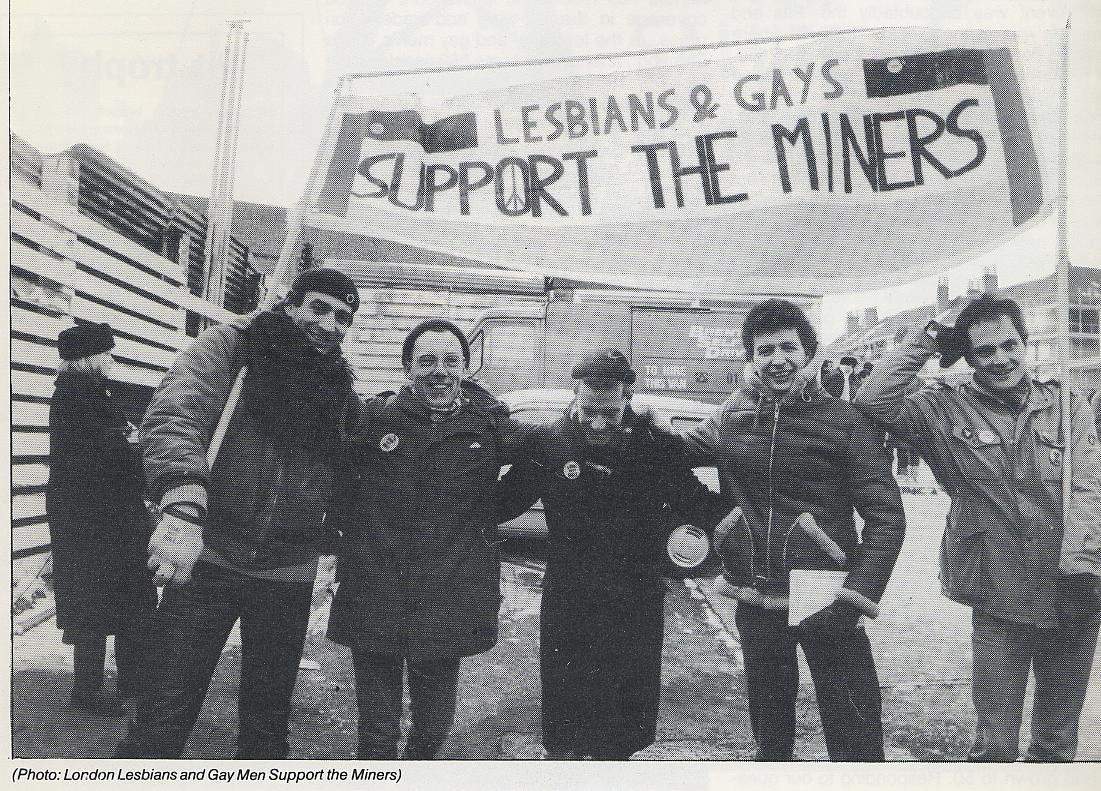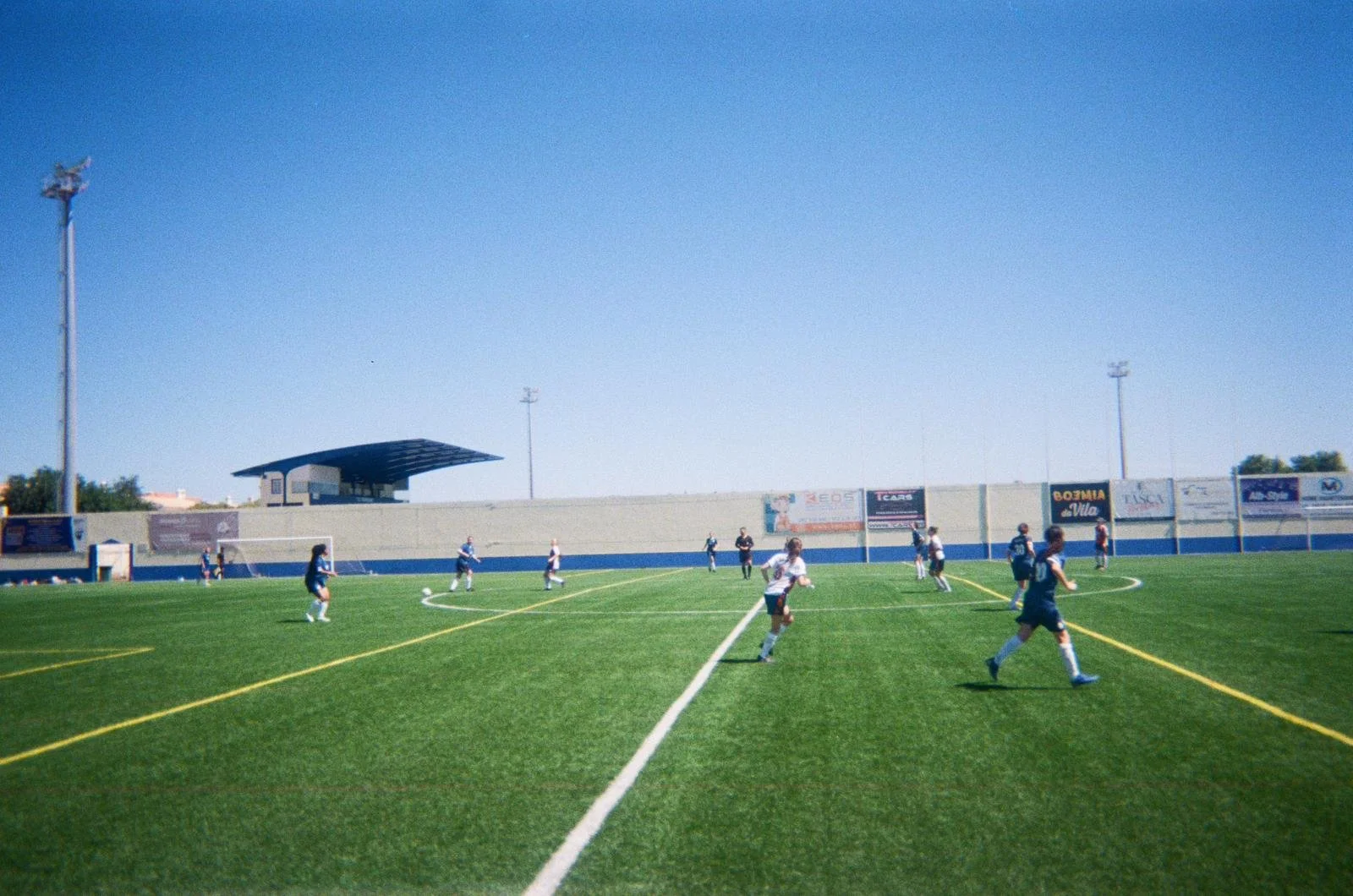Presented at IWITOT 2018: “Lesbians and Gays Support the Miners”

The idea I presented at SOFII’s IWITOT 2018 (you can watch my 7 minute talk here) took place in the mid-1980s.
The coal miners’ strike had been going for months and would continue for almost a year. Thatcher sequestered the funds of the National Union of Mineworkers, so anyone who wanted to donate to support miners had nowhere to send their money. Mining families and the villages and towns built around the mines were going hungry and being ostracised, as well as facing police brutality on the picket lines, and being demonised by the media.
Separately, the LGBT community was facing its own problems. AIDS was killing men at an astonishing rate; queer clubs, bars and social spaces continued to be regularly raided by the police; consenting adults were still being registered as sex offenders or arrested for public displays of affection; and Thatcher was leading a ‘family values’ campaign to whip up public homophobia. Queer people and their communities were dying and being ostracised, as well as facing police brutality on Pride marches, and being demonised by the media.
Out of these two bleak and painful circumstances rose a brilliant idea: Lesbians and Gays Support the Miners. A small group of queer people in London decided to align their cause with the strike, and unite against their common enemies, by fundraising to support the miners. Their work went largely unrecognised and existed mainly as myth in queer communities until Stephen Beresford dramatized it in the 2014 film ‘Pride’.
The main thing I love about this idea, is that it goes against so many of our instincts as fundraisers. Trying to raise funds, and encourage support for an unpopular cause? Why add an even less popular cause to your job? Desperately in need of cash to support your struggling community? Why add more people, and their needs, to your responsibility? Trying to find people to partner with that will be open to being associated with your cause? A group of out-and-proud queers didn’t expect to find that in a tiny Welsh mining village.
Nonetheless, they powered ahead. They used Pride parades to rattle buckets for the miners, deflecting homophobia by addressing an issue that the British working class were uniting behind. They invited striking miners to speak at big gay nights in the city, using the events as fundraisers and forging connections between groups of people who would never usually have met. And they did on-street fundraising outside Gays the Word (a queer bookshop in Bloomsbury), getting passers-by to stop and chat about the strike outside of a queer space they would usually rush to avoid.
And it worked! Other LGSM groups sprung up around the UK, but the founding London group alone raised £11k, which equates to about £30k in 2018 terms. This was the most any mining support fund raised in the whole country throughout the strike. It allowed the striking mining community to stay on the picket line for the winter, and gave LGSM and the miners exposure to issues they had never known about before.
Ultimately, the miners’ strike ended unsuccessfully, however, this partnership didn’t end there. The miners went on to return LGSM’s support at the Labour party conference the next year, tabling a motion to enshrine lesbian and gay rights into party policy. Policies like this had been proposed and voted down before, but the National Union of Mineworkers used their block vote to secure policy and manifesto commitments that led the way for same-sex rights in the UK. And at London’s Gay Pride march in 1985 the miners came up from South Wales by the busload to march proudly alongside lesbians and gays. They brought such a large contingent that the LGSM group was promoted from the fringe groups to lead the march.
There are other great examples of this too:
Women’s Aid and RSPCA collaborated to create PetRetreat: fostering for the pets of women fleeing domestic violence.
The Shakespeare Theatre Association uses its arty donor base to support prison charity initiatives and created Shakespeare Behind Bars.
And there is now a new LGSM called Lesbians and Gays Support the Migrants who work to support migrants and refugees in the UK
It is a fantastic and challenging idea to collaborate with an unexpected cause to unite against a shared problem, for fundraising and social progress. In a fundraising profession and charity sector where we so often act as competitors, where we’re constantly asking ourselves how we can engage with new donor audiences, maybe some unlikely partnerships can be the key to pushing our causes forward together.
Originally published at sofii.org.
As we close the chapter on 2024 and step into a new year, our Advisor, Harriette, finds herself reflecting on what’s needed to move philanthropy forward in 2025.
It’s not a groundbreaking revelation that staff wellbeing and burnout are huge challenges our sector is facing right now, and the sector-wide lack of investment in professional development has a lot to answer for.
Our Associate Advisor Charly makes the case that greater investment in your grantmaking team = greater impact for your organisation, and beyond.
While philanthropy and football may seem worlds apart, I’ve started thinking about the many similarities that can provide valuable lessons for those in the philanthropic sector. I for one, am always learning about the essential elements of football that can inspire and inform effective philanthropy.
Through the power of collective design, our fundraiser and grantmaker #FixTheFlow Fellows have imagined the future of our philanthropic funding system, and we should all listen carefully.
In the coming months, our Associate Carli is exploring the complexities of social innovation and will share her learnings, insights, and questions with you.
I.G.’s CEO Emily shares some of the mistakes and challenges she found during her leadership journey, and what she learned and will share in I.G.’s new Leadership Lab.
I’m expected to show up as a leader, but don’t feel like a leader. Introducing Impact & Grow: A Leadership Lab.
Leveraging Limited Funds For Humanitarians: Insights from the 2024 #HX24 conference, organised by Save the Children UK and the Humanitarian Leadership Academy.
Social enterprises have a particularly interesting relationship with Monitoring, Evaluation and Learning (MEL) as they need to capture both the financial and social/ environmental impact of their work, and speak to a wide range of potential funders and investors. Caitlin McLoughlin chatted to Abhinav Khanal, Co-Founder and Executive Director of Bean Voyage, to explore this further.
Image Credit: Bean Voyage
A round up of everything the I.G. team did in 2023!
Introducing a new, dedicated funders stream to I.G.’s #FixTheFlow Fellowship! We’re accepting applications until 17th November (for a 2024 start). Join our movement at fixtheflow.org
Join us for one (or all!) our eight workshops in our Autumn Training Series, where we will cover some of the trickiest topics facing fundraisers today.
What does meaningful and effective learning actually mean in practice?
Our Advisor Caitlin interviews Kore Global’s Emily Boost on learning how to learn and all things feminist evaluation and learning.
How do we balance our passion and our desire to give our best, whilst not being consumed by failure to live up to our own or others’ expectations?
At I.G. Advisors (I.G.), we’re often approached to design and implement evaluations for our clients to understand the impact of their grantmaking, fundraising or programmatic strategies, and identify opportunities for evolution.
The ‘lone saviour’ approach won’t cut it (and it also might destroy you).
It’s hard to believe it now that we’re living through a polycrisis, but the financial crisis and Great Recession of the 00s felt like a once-in-a-lifetime jolt to the world order at the time.
What you can learn from others leading philanthropic networks like yours
‘Well, we could have called that one.’
I.G. Advisors (I.G.) recently had the pleasure of collaborating with The Big Give and Rosa on the Women and Girls Match Fund.
Being a parent is often a thankless task. You take something and nurture it, treating it with love and care, losing sleep and worrying if — against all odds — , it will achieve its full potential and become the best it can be. It may never, ever show gratitude for your sacrifice. And then one day it will grow up and leave.
New I.G. Insights report explores how fundraisers and funders can support digital fundraising for racial justice issues.
#TaxPhilanthropy — wealth holders have the power to pay more tax right now even if governments fail to reform their policies
How starting small might be the most effective way to change the world.
An insight into “Modern Grantmaking: A Guide for Funders Who Believe Better is Possible”
A couple of weeks ago, I.G. brought back its much-loved book club event for our first in-person get together in over a year.






























